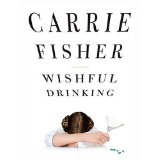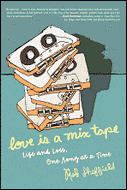A briefer (and less self-indulgent) version of this appears on Goodreads.
—–

Superman: The Unauthorized Biography by Glen Weldon
My rating: 3 of 5 stars
I was five years old when Superman: The Movie was released, and while I can’t remember much of the experience — by gum, when I left the theater with my parents, I believed a man could fly. I don’t know if that was my introduction to the character, it’s certainly the one that I remember. He was certainly around for the rest of my childhood — action figures, in SuperFriends, coloring books, the sequels, clothing, and, of course, in comics. He was never a favorite the way that Robin (later Nightwing), Cyborg, Changeling, or Spider-Man were, but he was a constant, an ideal. The cover of Crisis on Infinite Earths #7 is burned into my brain. I can’t tell you how many times I read John Byrne’s Man of Steel. Even after I stopped collecting comics, he was around — I watched most of Lois & Clark‘s episodes, and every one of Smallville‘s. My older sons and I spent who knows how many hours with the Justice League cartoons. I even own Superman Returns on DVD (as I recall, I purchased it the same day as I got the Donner Cut of Superman II, a far better use of my money).
In other words, this was a book written for people just like me.
Glen Weldon, NPR’s Comics Critic, has given us a great cultural history of Superman — from his prototypes and then genesis in the early work of Shuster and Siegel up to The New 52 and looking forward to the release of Snyder’s Man of Steel — and all points between. At once entertaining and pedantic, Weldon examines The Last Son of Krypton, the state of comics as a medium, and what both say about American culture through the decades.
He begins, as he ought, with Jerry Siegel and Joe Shuster growing up, reading and (even as kids) writing comics, their struggles along the path to publication and eventual establishment in the field. Shortly after this, they came up with their most famous creation, which was essentially the inception of the dominant genre in comics. Weldon focuses on this period in painstaking detail — giving detailed descriptions of the early stories (panel by panel sometimes), their reception and sales.
Following this, he moves into decade by decade summaries — in these chapters Weldon looks at the predominant themes in the stories, power changes and development, new characters, and so on. Special attention is given to Lois Lane (both as an individual and in her relationship(s) to Clark/Superman), tweaks to his origin, and depiction of Krypton. I thought there were too many reboots, resets, etc. today — glad to see it’s not a novel development. Superman’s appearance in other media is also discussed — comic strips, radio, television, cartoons, movies, and even merchandising — how that affects Superman, Clark and the rest. As interesting as that was, I was most interested in seeing how cultural movements, politics and wars impacted the character.
Weldon spends a lot of time discussing Superman: The Movie, the ups and downs along the path to its production. I laughed out loud at the lengthy list of actors considered for the role — so, so few of them should’ve been in the running. Everyone so up-in-arms about the recent Affleck-as-Batman casting should read this list, it might help them see how good he might be in comparison. The list for Lois was shorter, but no less interesting. In light of how far-reaching movie cross-promotion goes today, it’s amazing to see how little DC Comics did to capitalize on this movie (or the sequels).
I think he went lighter on Superman in the comics from this point on, focusing on the Reeve films, the Superboy TV series, Lois & Clark, Smallville, and Singer’s movie. Well, except a really good and thorough look at The Death of Superman saga from the 90’s. Still, fascinating on the whole — sometimes the level of detail can get overwhelming and hard to wade through, but it was worth it. It’s not encyclopedic — however close it feels — there were stories and creators that I thought got short shrift from the last couple of decades. For example, I was disappointed in the lack of any discussion of It’s Superman by Tom De Haven — 2005’s best depiction of the character, although as it wasn’t sanctioned by DC, I understand it.
I would’ve liked to see a more consistent tone — he never steps over the line in to fanboy territory, but generally he’s positive about the characters and universe — but from time to time, he seems snide and like he’s looking down on the franchise and its fans. That said, his take on the character as a whole, and why he’s still a force in popular culture today expressed in the Introduction was great — almost perfect. I wish that Nolan and Snyder had more in common with that take than they seem to have. My major complaint was the utter lack of any images whatsoever — as thorough as some of his descriptions of the art may be, it’s no replacement for the Real (reprinted) McCoy. Licensing those images would be a nightmare (and likely an expensive one), so again, I understand it — I just would’ve liked to see it.
For fans, for those who like the character but wouldn’t go so far as to call themselves that, those interested in the medium — this is a recommended read on this slice of American history.



 This is by no means the best written book I’ve read this year–which is a shame, because Carrie Fisher is a skillful writer. It is, however, probably the funniest thing I’ve read since
This is by no means the best written book I’ve read this year–which is a shame, because Carrie Fisher is a skillful writer. It is, however, probably the funniest thing I’ve read since  If any part of that selection resonates with you in any way, or if you just like reading insightful men talk about their love for their wives. Then you need to read Rob Sheffield’s
If any part of that selection resonates with you in any way, or if you just like reading insightful men talk about their love for their wives. Then you need to read Rob Sheffield’s